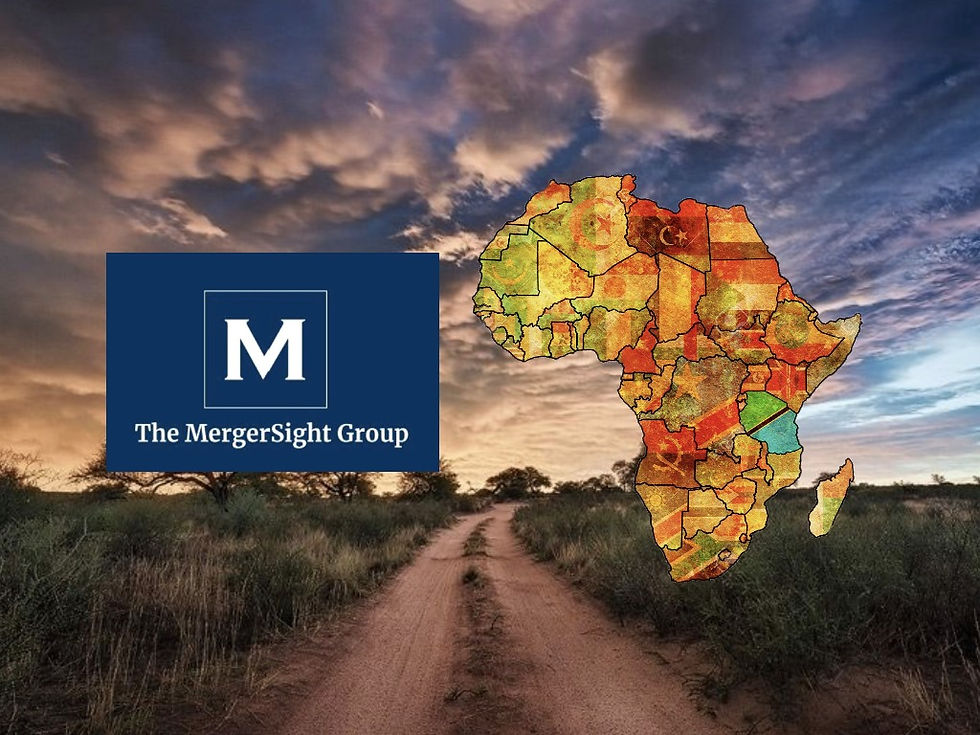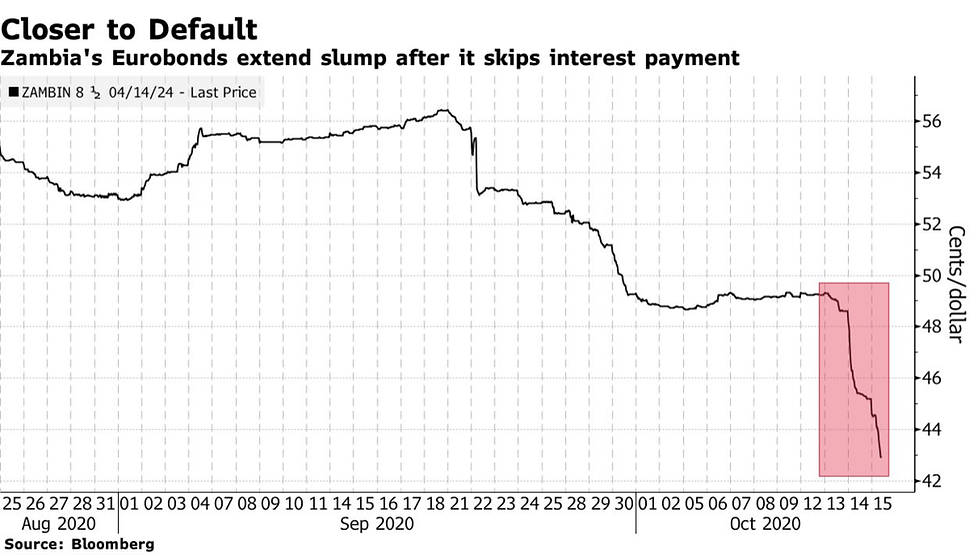Emerging Markets News - Africa
- The MergerSight Group

- Nov 2, 2020
- 4 min read
By Tim Bamberger (Kings College London)

GENERAL NEWS ON AFRICA - TRENDS
The global pandemic continues to pressure economies and society on the continent of Africa. Case numbers range from approximately 382,000 in South Africa to about 100 in Seychelles. To what extent low case numbers in many African countries are influenced by very low testing will be up to interpretation.
The World Bank has predicted economic growth for the continent of Africa at an average of 3.2% for the fiscal year 2020. Recent estimates by Deloitte’s Africa-team indicate a decline of -0.8%, which in comparison to the average decline of -10% in Western developed economies, does not seem too bad overall.
Recently, some social unrest in Nigeria has made global headlines. There were 69 reported civilian deaths during the first protests against the SARS (Special Anti-Robbery Squad) government task force, which is majorly criticized for discriminatory, racist, and sexist affairs.
ZAMBIA – DEBT DEFAULT
Zambia could be the first African country to default on debt during the COVID-19 pandemic across the globe. The government has tried to persuade creditors to agree to a debt-payment holiday.
Three billion dollars worth of Eurobonds from the Zambian government will be due for a 42.5 million US dollar coupon payment on November 13th, as the last deadline. The government has already declared, they will most certainly not be able to service this debt unless a group of key investors and stakeholders grant them a 6-month interest payment relief. The Financial Times has reported that most key stakeholders have not agreed to an interest payment relief agreement. A major hedge fund investor has commented, “the government has provided no credible medium-term framework that explains how the country intends to address the country’s long-standing macroeconomic imbalances and restore debt sustainability”. Zambia has later announced that they will consequently have to prepare for default.

SUDAN – PEACE DEAL WITH ISRAEL
The prime ministers of Sudan and Israel have announced to terminate the state of belligerence between their nations. Both are determined to make an effort to sustain a normalization of their political relations.
President Donald J. Trump has played a very active role in the negotiation between Sudan and Israel, since it is vital for his public opinion polls ahead of the US election to secure foreign policy victories. Sudan’s Prime minister Abdalla Hamdok has thanked the USA for removing his country from the list of state sponsors of terrorism, which ultimately lifts the trade embargos previously imposed.
Sudan’s struggling economy gives good reason to expect billions of dollars in aid from the US, the world bank, and the EU. Furthermore, Sudan’s finance ministry has announced hopes to write off 60 billion dollars of past debt incurred by the state under its former dictator. Israel has indicated they will be “tapping into Sudan’s economic potential”, as a result of the peace agreement.
NIGERIA – FINTECH INDUSTRY
Nigeria has a young and tech-degree educated workforce, keen to emerge from the increasing competition. The banking sector in Nigeria is worth over 9 billion US dollars. Over the last 5 years, the fintech industry in Nigeria has raised over 600 million US dollars in total.
Originally starting with payment solutions, the industry now expands into consumer lending and asset management. Whilst insurance remains an untouched area. Startups are encouraged to develop cost-efficient healthcare premiums, promote and increase insurance distribution, and design an individualistic pricing algorithm.

The fintech industry seems to be pivoting to respond to the current global crisis and it is very likely to grow internationally in the context of emerging markets. The main decision-makers of success will be the technical integration, the level of investments in the short and long term, and lastly the degrees and amounts of government regulations.
CENTRAL AFRICAN REPUBLIC – RUSSIA PROVIDES MILITARY EQUIPMENT
The Russian ambassador has publicly donated ten armoured vehicles to the Central African Republic (CAR) in October of 2020. The Kremlin has expanded presence there over the last few years, by sending weapons, contractors, and political advisors.
Russia has in recent years been known to work hard to expand their reach to build global prestige again. Russian senior military officer Oleg Polguev will serve as an advisor to the CAR’s military. Ambassador Titorenko was quick to add that he will be flying to Moscow to discuss economic cooperation between the two countries. CAR has asked for Russia's assistance in lifting the weapons embargo that was imposed by the UN.
SOUTH AFRICA - MEDICINE DELIVERY SERVICE
UBER has launched a medicine delivery service in South Africa as an extension to their UBER eats app. Analysts have indicated very positive outlooks for UBER’s decision since they already have over 2 million users in South Africa, who can now also get medicine delivered via the same provider.
Statista predicted in their “Digital Market Outlook”, that the South African e-commerce market can expect to experience annual growth of 11% per annum until 2024.
SOUTH AFRICA - NUCLEAR POWER PLANT
Africa’s only nuclear power plant is indebted and has recently started talks about a $1.2 billion investment round for 2021. The nuclear power plant previously had to shut and seize operations as essential safety equipment had to be upgraded and repaired.
The $1.2 billion dollar injection should enable the nuclear power plant to operate for another two decades. Environmental activists have since started to protest in Cape Town against this measure.
